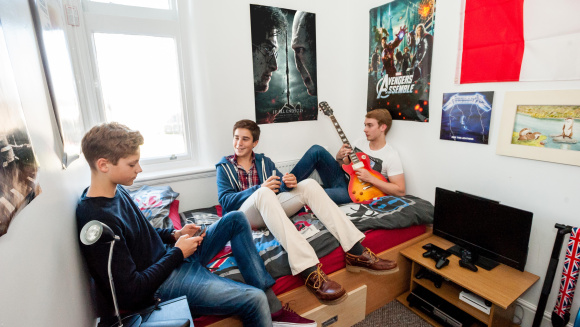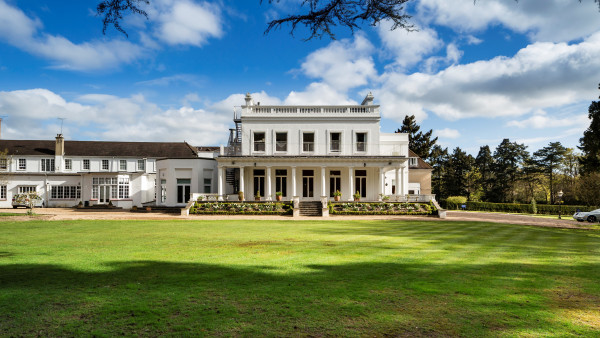Boarding school for the sixth form

Why start boarding in sixth form?
Sixth-form boarders are treated a little like adults-in-waiting. Generally they'll have their own study bedrooms in separate accommodation with well-equipped kitchens (Ocado will deliver to boarding schools!), washing machines, even yoga studios. At Westonbirt School, where over three-quarters of sixth formers board, one told us, ‘There aren’t so many distractions; it helps us stay focused on our studies.’
Today’s boarding schools pride themselves on helping students become more independent before university. At Heathfield School, an all-girls’ boarding school in Ascot, Berkshire, girls in the upper sixth live in their own bungalow on site, while Burford School, a co-ed state boarding school in Oxfordshire, has created a flat within the boarding house for a group of sixth-form girls to get them ready for the university years. At Rendcomb School in Gloucestershire, groups of sixth formers take turns to stay for five days in the school flat in the nearby village. They are given housekeeping money and (apart from lunch at school) must manage this and the chores. Apparently, sometimes it runs like clockwork, sometimes ‘mummies deliver food parcels and help clean up at the end’.
A move to sixth-form boarding rarely happens unless the young person in question is fully behind the decision. Parents may also feel that it’s a positive choice that will help their child learn to live independently and, as a side benefit, reduce some of the family conflict that teenage years often bring (at least during term time). However, if your son or daughter hasn’t boarded before it’s important that they understand the realities of living in a school rather than at home.
The reality of sixth-form boarding
Even in the sixth form it’s unlikely that your son or daughter will enjoy the same freedoms they have at home. Parents and children will be expected to agree to and abide by the school’s policies on everything from uniform, energy drinks, and alcohol to PDAs (public displays of affection – kissing, holding hands, etc), mobile devices and random drugs testing. These policies (all of which will be on the school’s website) have been drawn up to ensure not just your child but the whole boarding community is safe. You should have a frank discussion with your child to ensure you are both clear on what the school’s rules say they can and cannot do. If he or she is accustomed to a more liberal domestic arrangement, there needs to be agreement that the school’s regime will be respected.
Rules and regulations
Some schools allow 18-year-olds to visit ‘approved’ pubs or restaurants in the nearest town, but such freedoms are a privilege instantly rescinded if abused. Others – perhaps in more rural areas – have a sixth-form bar where alcohol is dispensed under supervision and always with parents’ consent. What happens under the radar is, inevitably, another matter – as it often is at home.
Rules about what happens on school premises are fair enough, but it’s a much greyer area when full boarders attend private parties at, for instance, a day pupil’s house. Parental permission must be obtained to attend this kind of event, but responsibility for policing pupils’ behaviour under these circumstances cannot be the school’s.
Relationships between pupils at boarding schools are a concern for parents and, we imagine, a chronic headache for staff – especially at co-ed full-boarding establishments. At most schools ‘intimate or explicit sexual relations’ are classed as ‘misconduct’ that can lead to suspension or expulsion. Some schools ban any public display of affection; some don’t. However, as with drink and drugs, banning sex doesn’t mean it won’t happen. If your daughter is joining a boys’ school with a co-ed sixth form it’s important to get a feeling for how well this transition is managed and how actively gender relations are monitored.
This book, dedicated to boarding schools, contains over 350 of The Good Schools Guide’s highly informative and famously frank reviews.
Being the newbie
Finally, we would advise asking how many new boarders join the school in the sixth form. While schools will always do their best to integrate new pupils, it can be difficult if your child is one of just a few new faces joining established social groups.
You should feel able to raise questions and discuss concerns about this or any other matter with the school. Talking to parents with older children at the school is also a good idea if you want to find out just how intimate the relationship is between policy and reality. The ‘Pastoral care, well-being and discipline’ section of our reviews covers these issues.
Featured in: Independent schools







